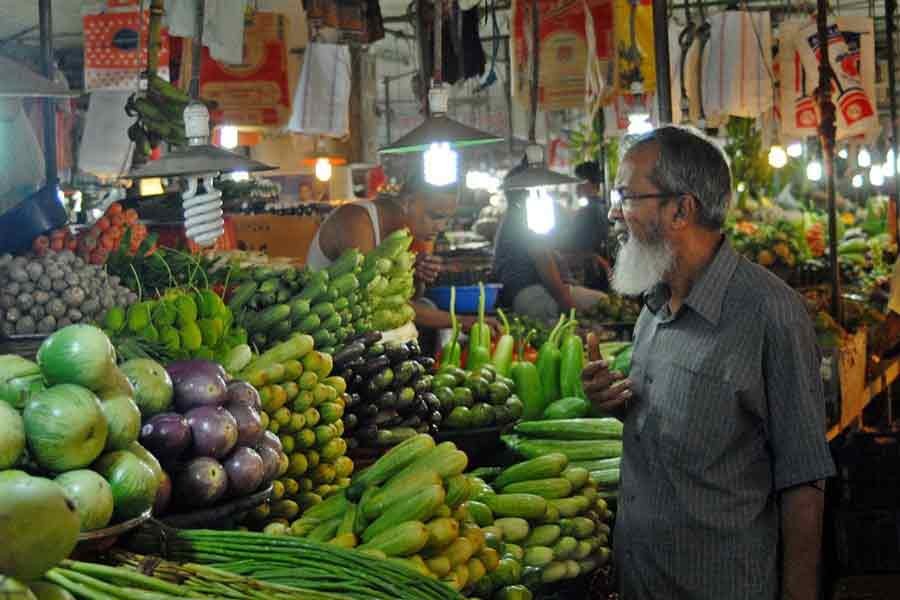The general rate of inflation surpassed 6 per cent in December, the highest level in 2021, propelled by the spiralling prices of food and consumer goods in the country.
The point-to-point inflation rate last month was 6.05 per cent, up from 5.29 per cent at the same time in 2020, according to data published by the Bangladesh Bureau of Statistics on Thursday, reports bdnews24.com.
In November, the percentage score on the key economic index was 5.98 per cent.
The average inflation rate in 2021 stood at 5.54 per cent, down from 5.69 per cent in the previous year. Although the average rate was lower than in 2020, doubts linger about whether the government's target for fiscal 2021-22 can be achieved.
The government is aiming to keep the inflation rate within 5.30 per cent in FY22 to prevent a price spiral as the economy claws its way out of a pandemic-induced slump. But it had failed to meet the target of 5 per cent in FY21.
Inflation has been on the rise since August 2021 as the prices of most commodities crept up.
Food inflation ticked up to 5.46 per cent in December, compared with 5.34 per cent the year before.
But the non-food index saw a marked year-on-year increase, hitting 7 per cent last month. The rate was 5.21 per cent in December 2020.
The rural inflation rate rose by almost one percentage point in the space of 12 months, ending 2021 at 6.27 per cent. Meanwhile, urban inflation climbed from 5.31 to 5.66 per cent during that period.
Enlarging on the latest figures, Ahsan H Mansur, executive director of the research institute Policy Research Institute (PRI), pointed out that prices of products are on the rise both at home and abroad. This has resulted in a higher rate of inflation.
"Prices of goods are going up in the international market due to rising transport costs and various other reasons. At the same time, an increase in the value of the US dollar is also driving up the prices of foreign goods in the domestic market.”
On the surging prices of domestic goods, the economist highlighted the government's failure to rein in the price of rice even after the Aman harvest.
"The US Department of Agriculture has already warned us that the yield from this year's Aman season was 800,000 tonnes lower than last year. Last year, the government imported about 1 million tonnes of rice to address a crisis. On top of that, if the production is 800,000 tonnes lower, the deficit will increase by a lot.”
He urged the government to import rice quickly in order to get a handle on the situation.


